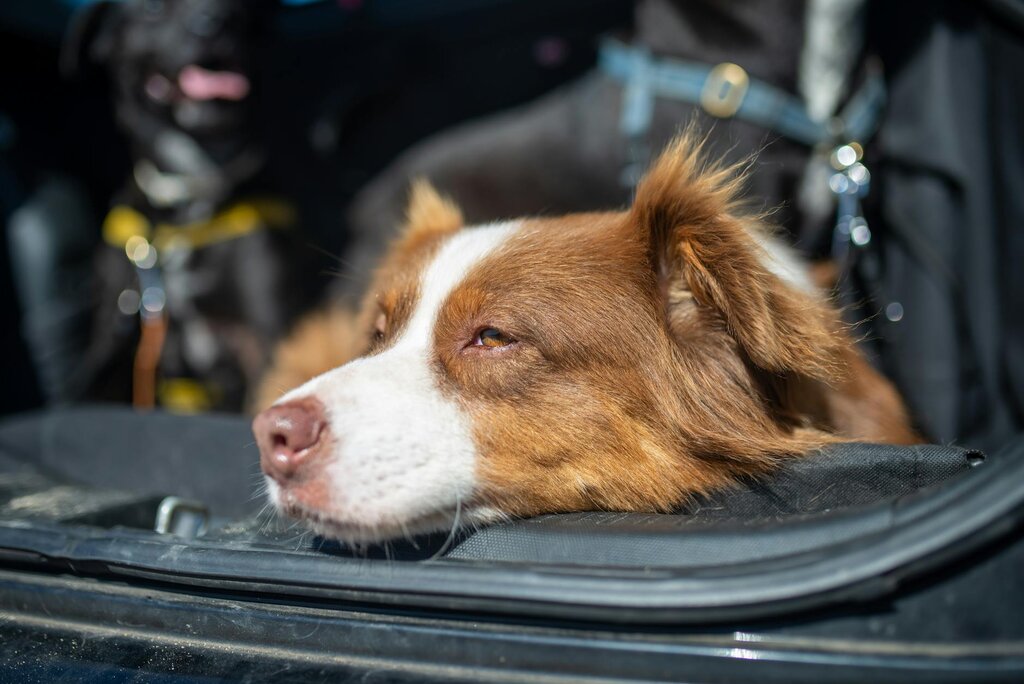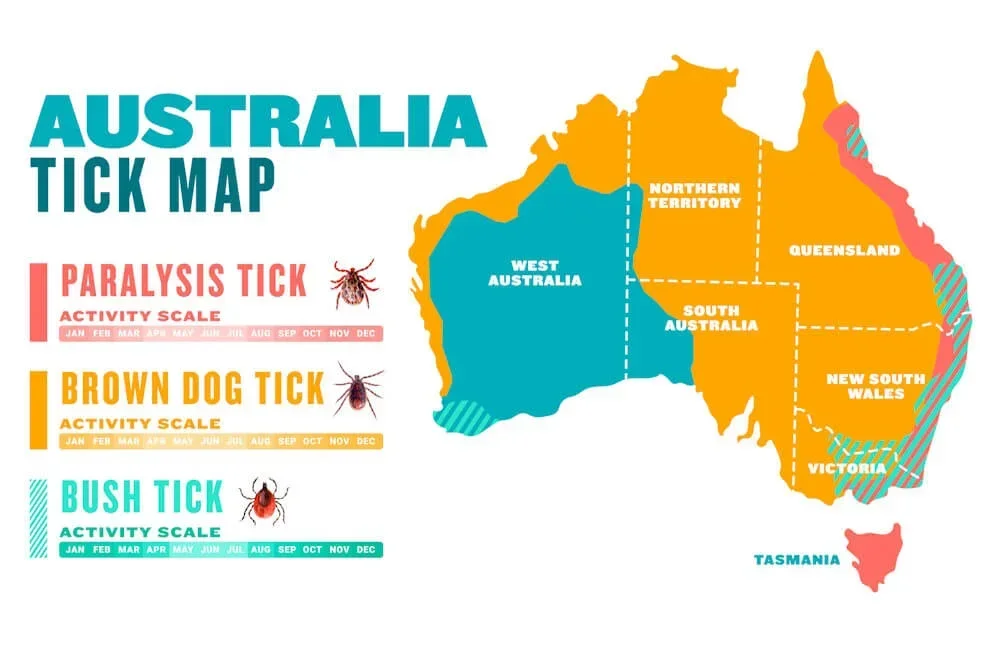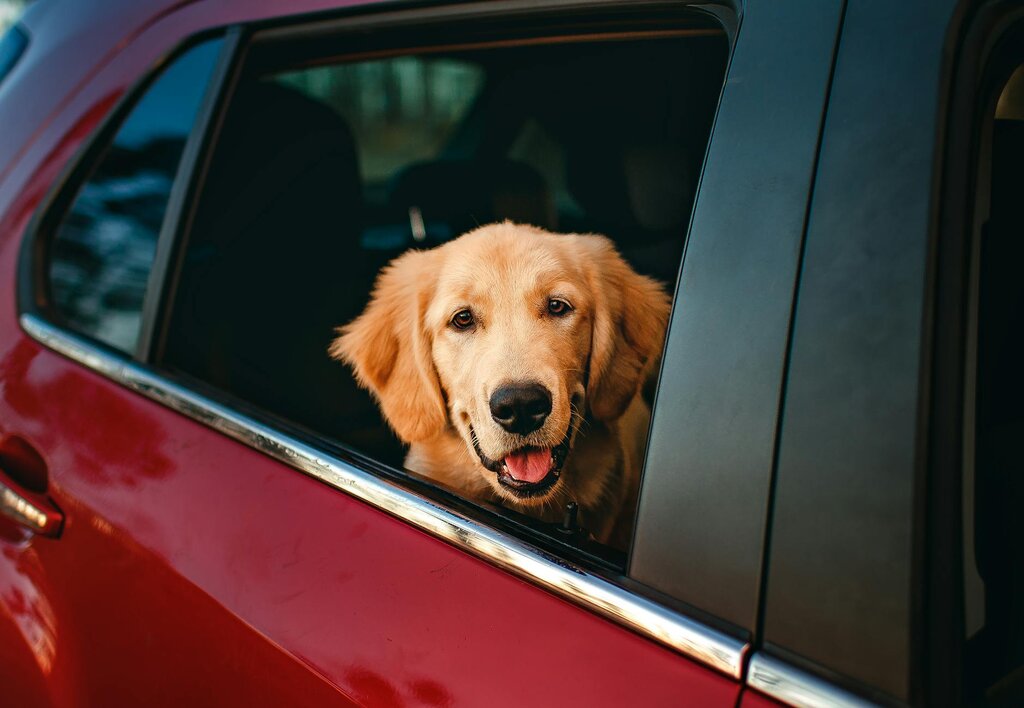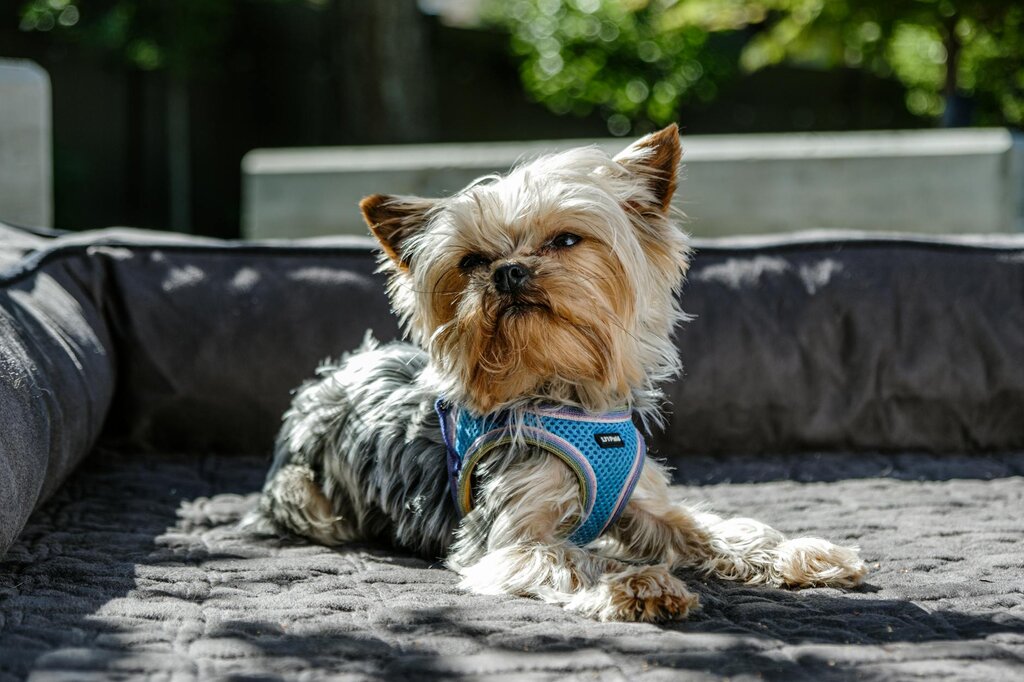Last Updated: 13/10/2025
8 Vet Tips for a Safe Road Trip with your Dog
Planning a road trip with your dog? Our vet's guide covers 8 essential tips for a safe and stress-free journey. Learn about car safety, calming aids, parasite prevention, and must-have travel accessories to ensure a happy adventure for everyone.
Author: Dr Belinda Stancombe BVSc (Hons)
Reading Time: 5 minutes - short read
A road trip adventure is always better with your dog along for the ride. While the temptation is to simply pack the car and go, a safe and happy journey requires a little planning. To ensure your travels are stress-free for both you and your pet, our vets are sharing their essential tips for preparing for the road ahead.
1. Do a trial run

If you have never travelled with your dog before, it's a good idea to do a couple of short car trips with them first. Some dogs love the car and will settle in quickly, while others may be anxious, unsettled, or even experience motion sickness. It is helpful, for you and your dog, to know what to expect before you leave, so you can prepare for a comfortable and stress-free trip.
For more information, take a read through our article all about How to Cure Car Sickness in Dogs.
2. Check the fine print
Before you head off, check that your dog is up to date with their annual vaccinations. Kennel cough or canine infectious tracheobronchitis is a highly infectious respiratory disease dogs can develop if they are not protected or overdue for their regular vaccinations.
Leptospirosis, another infectious disease in dogs, is prevalent in the northern parts of Australia and is often not routinely vaccinated against in the more southern states. If you are travelling interstate, it is a good idea to speak to your vet to ensure that your dog is protected.
Microchipping can save a lot of worry if you become separated from your dog during your travels. While many dogs are microchipped as puppies, owners contact details can change over time. Before going on holidays, ensure your dog's microchip details are up to date. These details are kept in a central registry, separate to your veterinary clinic. An Identification tag is also helpful in keeping your details up to date.
A GPS Tracker secured to your dog's collar allows you to track your dog in real time and locate them quickly if they go missing for any reason.
3. Leave the nasties behind

Depending on where you are travelling to, it is important to make sure your dog is protected against parasites such as ticks. If you are travelling along the east coast of Australia, ensure your dog has protection against paralysis ticks, which can be deadly if your dog is bitten.
The Brown Dog Tick, while not harmful themselves, can transmit tick-borne disease such as Ehrlichiosis, a bacterial disease that recently spread in Australia. Ticks are reported to be most active during Spring and early Summer, however year-round protection is recommended in high risk areas.
For more information, take a read through our article all about Tick Paralysis in Dogs.
4. Safety first
To keep your dog safe while travelling, it's important that they are restrained appropriately. This prevents injury if you brake suddenly or are involved in car accident. It also prevents them from jumping out if the car windows when open. While it may be easy to watch all the funny and interesting things our dogs do, distraction by an unrestrained pet can easily become dangerous.
There are a wide range of different restraint devices and car accessories available to keep both your dog and your car seats protected. A travel crate or carrier can help keep your dog contained and feeling safe in their own little den. There is also a range of dog booster seats and other car restraints, suitable for all sized dogs. For a large dog or an older friend who has difficulty getting into the car, try a dog ramp to make it easy for both of you.
5. Calming aids and nausea remedies

Not all pets enjoy car trips and for some, it can actually be a significant source of anxiety. If this sounds like your dog, there are a range of calming aids that may help. It is a good idea to try these well in advance of the holiday trip to see which one works best for your pet.
Pheromone products such as Adaptil help to promote feelings of calm and well-being and are available in slow release Adaptil Collars or Adaptil Transport Spray, both easy to use when travelling.
There are a wide range of natural supplements available to help minimise feelings of stress and anxiety. Zylkene is a non-medicated supplement for dogs that is derived from casein, a protein found in milk, and specially formulated to aid in the management of anxiety and stress. Zylkene is widely recommended by veterinarians and comes in an easy to give capsule that can also be opened and sprinkled on food, or as a chewable treat.
For some dogs, prescription medication may be required to help ease travel anxiety. In these cases, it is best to see you veterinarian for the most suitable medication for your dog.
6. Car snacks and tasty treats
Everyone loves a snack (or three!) on a long road journey - and it's no different for your dog! Pack a handy supply of no mess treats in the car for your furry companion. Treats have multiple benefits - aside from simply making your pet happy, treats can also help with obedience, provide distraction in times of stress, and can even help with anxiety!
7. Travel accessories and essentials

For compact packing with no mess, consider investing in a travel bowl and travel water bottle. Travel feeding accessories can really help save you space while packing, ensuring you can provide your dog fresh water and food wherever you are (and without having to carry bulky and heavy bowls!).
It is important to keep your dog cosy and well rested while travelling or staying away from home. Travel beds or mats are compact while providing your dog with a comfortable place to sleep.
A first aid kit is also a must for those pet parents travelling with their dog to more rural areas, where immediate veterinary care may not be available.
For smaller dogs, or those that struggle to get around a pet stroller or pet backpack provides a comfortable way from them to get around and enjoy the holiday.
8. Stop, revive, survive!
If you're in for a long trip, frequent breaks will be good for the both you and your dog. Stopping every two hours will help you recuperate and give your pooch a much needed bathroom and play break.
A little forward planning is all it takes to transform a potentially stressful car ride into a wonderful adventure for you and your pet. By prioritising their safety, comfort, and health before you leave, you're setting the stage for a smooth and enjoyable journey.
With your preparations complete, you can focus on the best part: hitting the open road and making lasting memories with your four-legged companion.
Further Reading
Want to read more? Check out our other articles:
Flea, Tick and Worming Guide for Dogs
History
Our experts continually monitor the health and wellness space and we update our articles when new information becomes available.
29 Sep 2025
Edited by Dr Gillian Hill BVSc (Hons)Dr Belinda Stancombe BVSc (Hons)
Veterinarian
Dr Belinda graduated from The University of Queensland in 2009 and has worked as a Small Animal Veterinarian for over 10 years in South East Queensland. She also has experience as a telehealh consultant, providing veterinary advice for online customers.She has a special interest in animal behaviour, preventative health, the human-animal bond and internal medicine. Outside of work hours she is closely affiliated with a kitten rescue and is also a devoted carer of orphaned rescue kittens.

